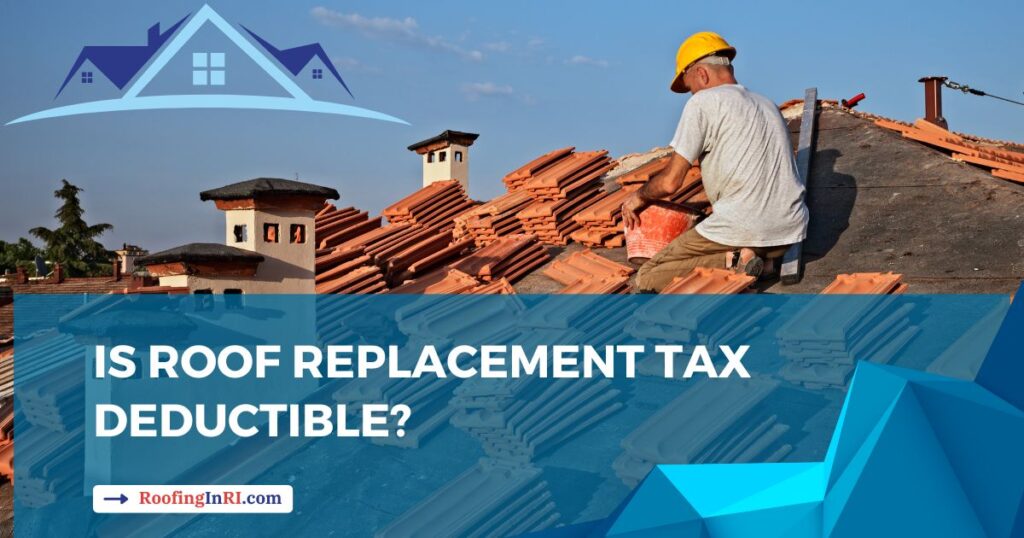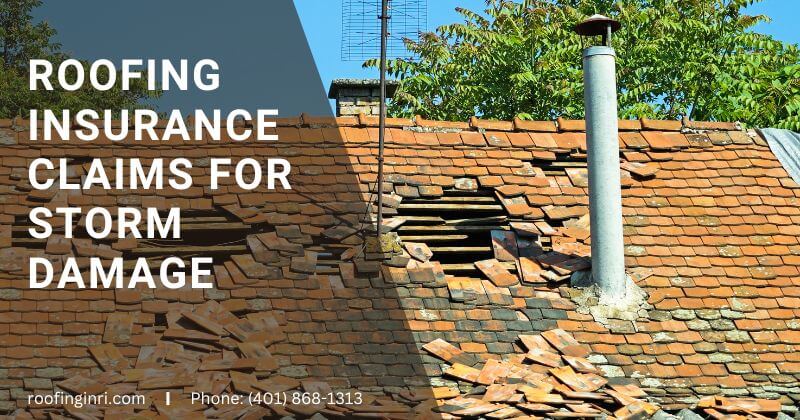Homeowners are responsible for maintenance and repairs. One significant expense many homeowners face is roof replacement. While it’s crucial for the structural integrity and safety of the home, the cost can be substantial.
As tax season approaches, many homeowners wonder: Is roof replacement tax-deductible?
In this short post, I will clarify the complexities of roof replacement tax deductions. Let’s get started.
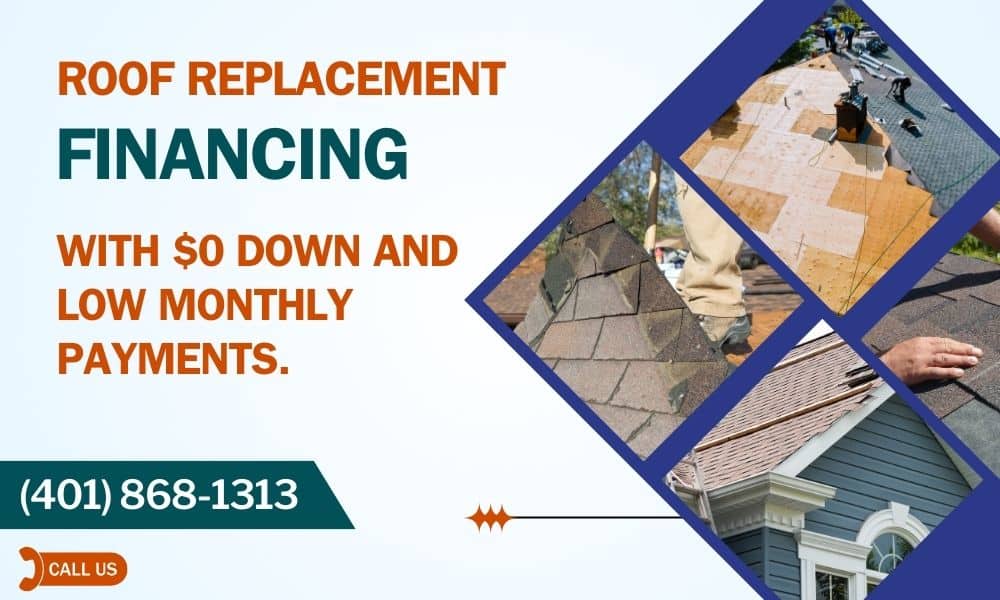
Understanding tax deductions

Before digging into whether roof replacement is tax-deductible, it’s essential to understand the concept of tax deductions.
Tax deductions reduce the amount of taxable income you have, potentially lowering your overall tax bill.
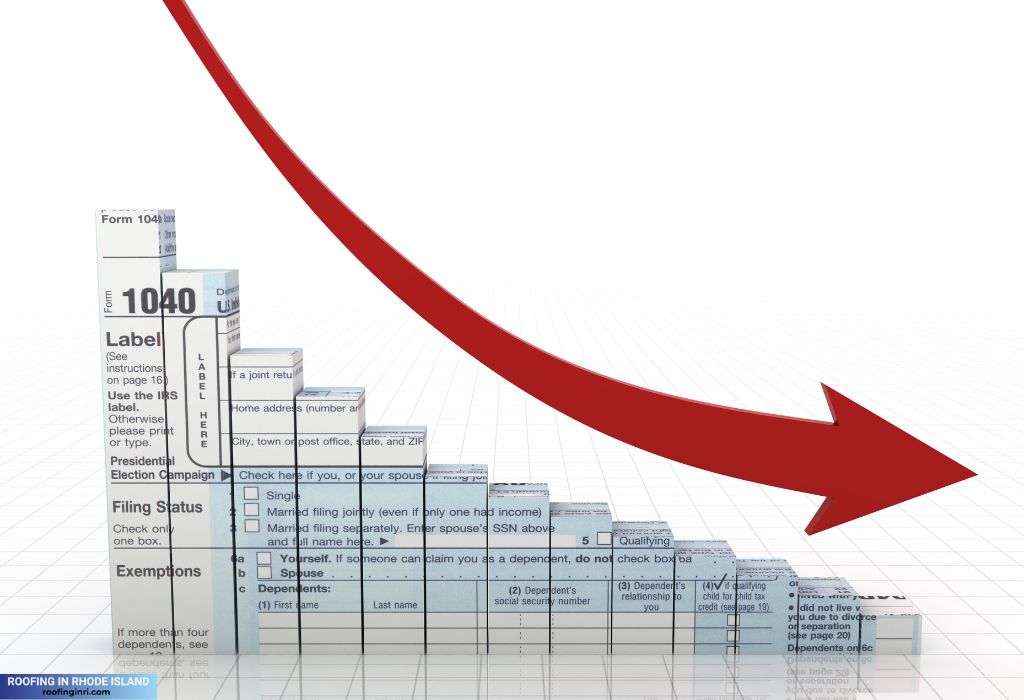
Deductions can be categorized as either standard or itemized. Standard deductions are predetermined amounts set by the IRS, while itemized deductions allow you to list out specific expenses you’ve incurred throughout the year, potentially resulting in more significant tax savings.
When is the best time to replace a roof? →
Is roof replacement tax deductible?
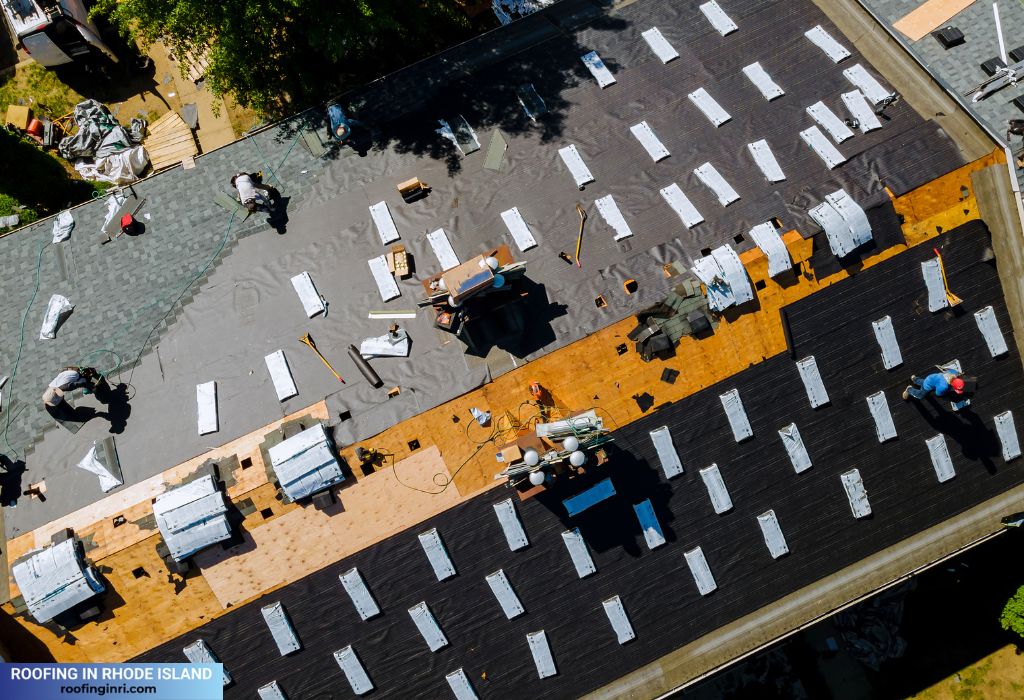
Unfortunately, for most homeowners, the roof replacement cost is typically not tax-deductible as a standard deduction.
However, certain circumstances allow portions of the expenses to be eligible for tax relief. These circumstances primarily revolve around whether you replaced the roof for repair or improvement. It also depends on whether it’s a rental or commercial property or a home for a living (personal residence).
Is roof replacement necessary? (Options, pros & cons) →
Repairs vs. Improvements
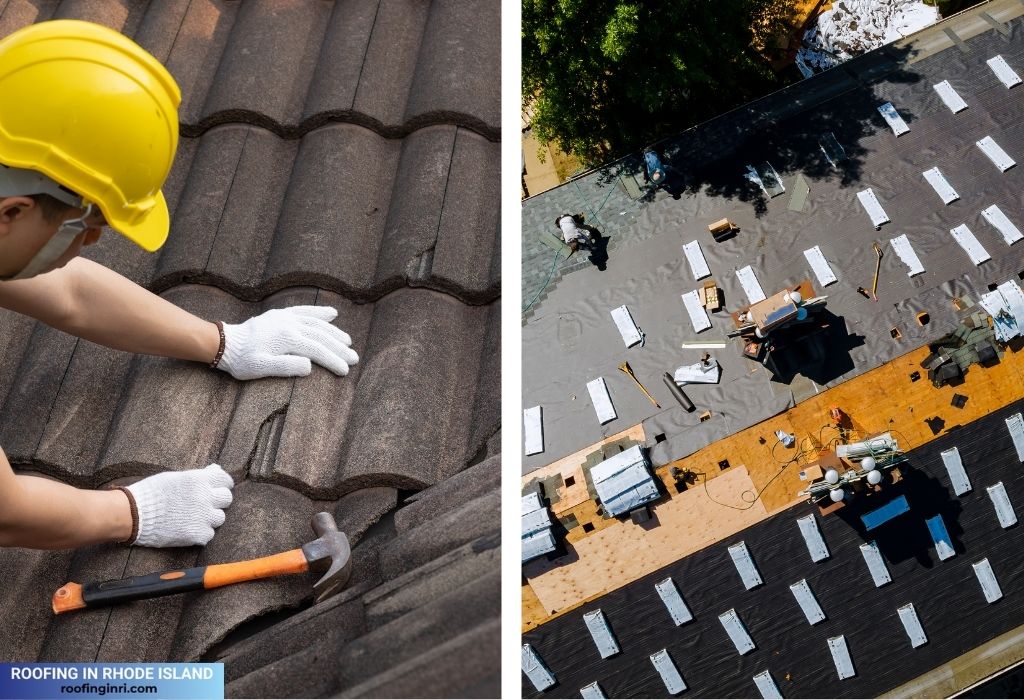
The IRS distinguishes between repairs and improvements when it comes to tax deductions. Repairs, which maintain the property in its current condition, are generally not deductible.
In contrast, improvements that extend the property value or life may be capitalized and depreciated over time, offering tax benefits in the form of deductions.
Replace vs repair a roof: 7 crucial factors to consider before you decide →
Rental properties
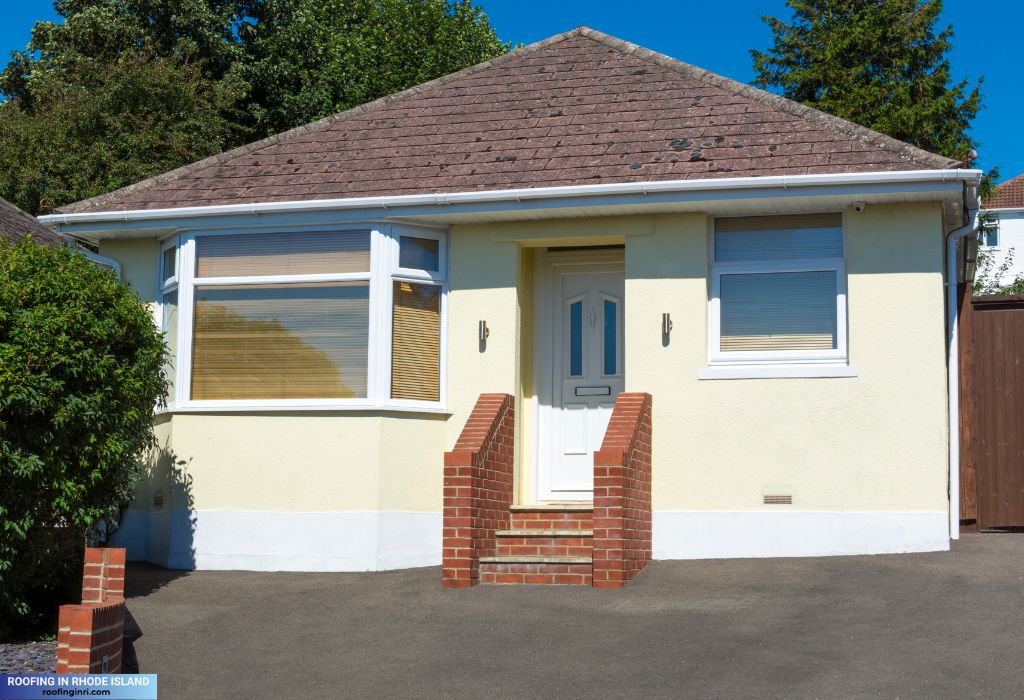
For homeowners renting out their property, roof replacement costs can often be deducted as a business expense.
The IRS allows landlords to deduct expenses incurred for the maintenance, repairs, and improvements of rental properties, including roof replacement.

However, like personal residences, the distinction between repairs and improvements is crucial, as it determines how the expenses are treated for tax purposes.
How do you get roof replacements from your insurance company? →
Business properties
If the property is a business location, such as a storefront or office building, roof replacement costs are generally deductible as a business expense.
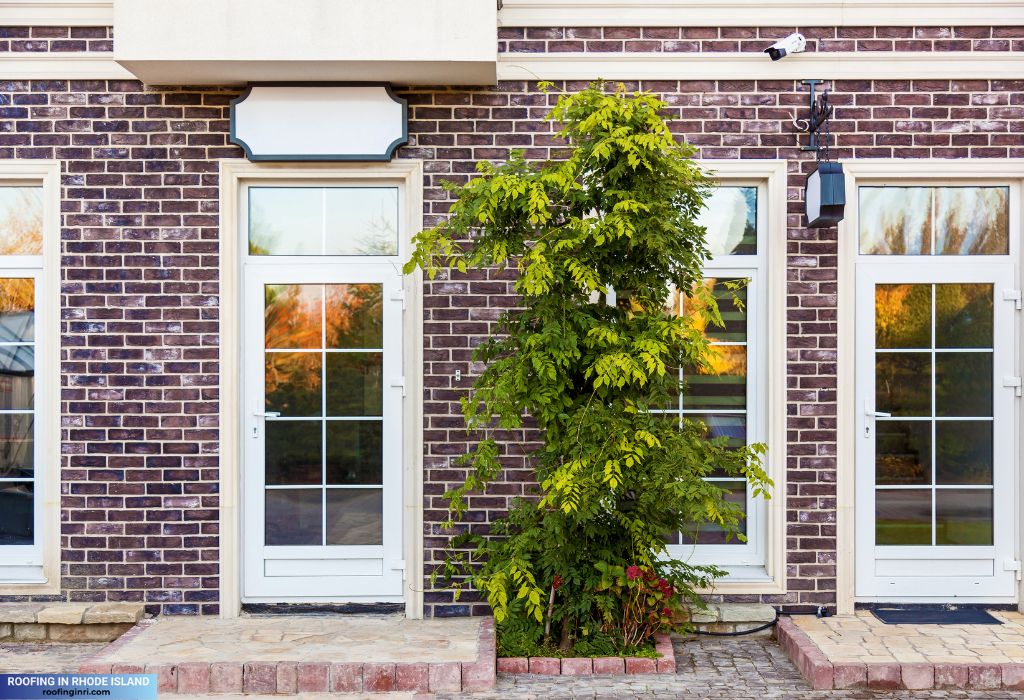
As with rental properties, the IRS considers these expenses necessary for the operation and maintenance of the business, thus making them eligible for deduction.
The 9 most common roof repairs →
Tax credits and energy efficiency
While roof replacement expenses may not be directly tax-deductible for most homeowners, there are alternative avenues to explore for potential tax savings.
One such avenue is through tax credits for energy-efficient upgrades.
Installing qualifying energy-efficient roofing materials, such as solar panels or certain types of metal roofs, may make homeowners eligible for federal or state tax credits.
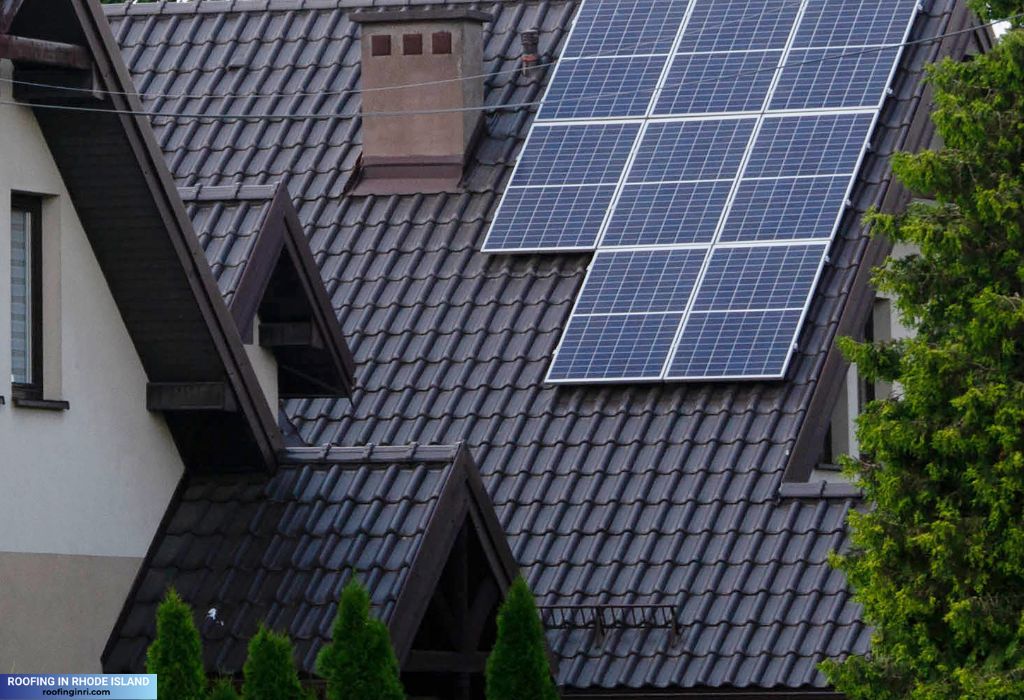
These credits can provide substantial savings and incentivize environmentally friendly home improvements.
10 essential tips for roof maintenance and repairs →
Will you get tax deductions if you run a home-based business?
If you run a home-based business or work from a home office, you may be eligible for tax deductions related to your home expenses.

The IRS allows individuals who use part of their home regularly and exclusively for business purposes to claim a deduction for certain expenses. This deduction is known as the home office deduction.
To qualify for the home office deduction, you must meet specific criteria set by the IRS:
- Regular and Exclusive Use: The space you claim as a home office must be used regularly and exclusively for conducting business. This means it should be your primary place of business or used regularly for meeting clients, customers, or patients.
- Principal Place of Business: Your home office must be your principal place of business.
- Business Use Percentage: You must calculate the percentage of your home used for business purposes.
How to repair roof flashing? →

Example of tax deductions of a home-based business
Let’s say you run a freelance graphic design business from your home office. Your home office occupies 200 square feet, and your total home size is 2,000 square feet. This means your home office use percentage is 10% (200 sq. ft. ÷ 2,000 sq. ft. = 0.10 or 10%).
Now, let’s consider some of the expenses you may be able to deduct:
- Direct Expenses: Expenses that are directly attributable to your home office, such as the cost of painting or repairing the office space, can be fully deductible.
- Indirect Expenses: Expenses that benefit your home and your business, such as utilities, homeowners insurance, and property taxes, can be partially deducted based on the percentage of your home used for business. Using the example above, if your total annual utility expense is $2,000, you could deduct $200 (10% of $2,000) as a business expense.
- Mortgage Interest and Depreciation: If you own your home, you can deduct a portion of your mortgage interest and depreciation as business expenses based on the percentage of your home used for business.
It’s essential to keep detailed records of your home expenses and consult a tax professional to ensure compliance with IRS regulations and maximize available deductions.
How does recoverable depreciation work in a roof insurance claim? →
Conclusion
While roof replacement expenses may not typically be tax-deductible for homeowners, there are exceptions and alternative avenues to explore for potential tax relief.
Understanding the distinction between repairs and improvements and the tax implications for rental properties and business locations is crucial for maximizing available deductions.
Additionally, exploring tax credits for energy-efficient upgrades can offer homeowners valuable savings while promoting sustainability.
Consulting with a tax professional or accountant familiar with your specific situation is recommended to ensure available deductions and credits.

